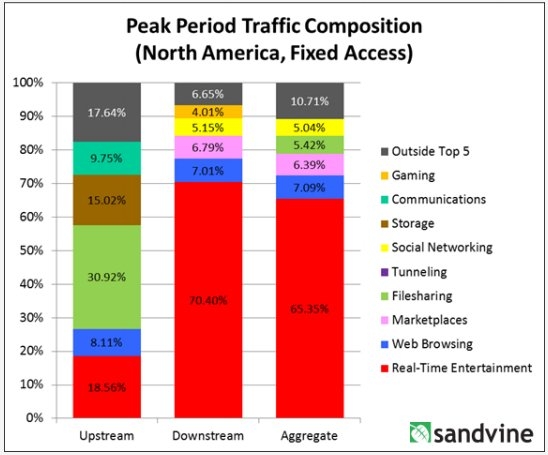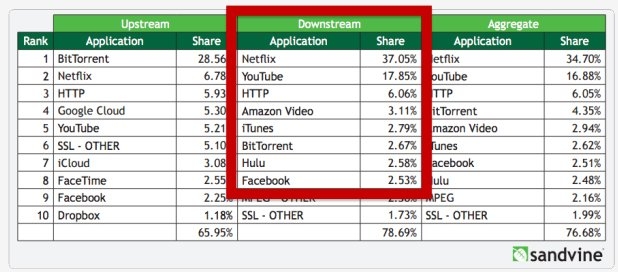The Internet connection, once viewed as a luxury item for those fortunate enough to own a computer, has become an integral part of everyday life for billions of people around the globe. While the Internet is widely used for business purposes, today's web is largely used for the same purposes it was many years ago: entertainment.
We're slap dab in the middle of a monumental shift in how we consume television, movies and music. The unprecedented movement is one you're probably already aware of but if not, have a look at these new statistics from broadband services company Sandvine.

As Re/code highlights, the large red bars in the chart above tell the entire story. During peak traffic hours (in the evening), 70 percent of home broadband consumption in the US is related to streaming media. Web browsing and e-commerce combined account for just 15 percent of downstream consumption while social network usage sips about five percent.
Just five years ago, streaming media accounted for 35 percent of broadband usage meaning we've doubled our consumption over the past half decade.

Digging deeper, we find that Netflix and YouTube are responsible for the vast majority of media consumption at 37.05 and 17.85 percent, respectively.
Streaming sources like Netflix, Hulu, Sling TV and YouTube offer end-users a dizzying array of media to choose from. The readily-available selection has prompted many to cancel their traditional cable subscriptions, saving hundreds if not thousands of dollars each year.
Saving money while adding flexibility are concepts that everyone can get behind... everyone except the cable companies that are losing subscribers (money) and ISP that are having to handle loads of traffic. Naturally, it should come as little surprise that both entities are doing their best to milk the system for all it's worth for as long as they can.
https://www.techspot.com/news/63066-streaming-media-now-accounts-more-than-70-percent.html
